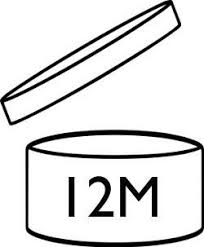Many of us wear eye make up every day without any problems, but remember your eyes can be very sensitive and it’s important that you treat them with care – especially when trying out extra dramatic looks. Here are the most important things to bear in mind, if you want to look good and look after your eyes:
Your out-of-date mascara could be home to all sorts of bacteria that could cause an infection such as blepharitis or even something more serious that could threaten your sight. Look for the icon that shows how long you should keep the product after opening it and don’t be tempted to hang on to it – even if it was an expensive gift! Mascaras and eyeliners have the shortest shelf life – usually around three months.

Don’t be tempted to try out a friend’s new mascara or borrow their eye liner if you’ve forgotten yours. They could be sharing more than their makeup. If they have blepharitis, conjunctivitis or any other transmittable infection, you could end up with that as well.
Don’t apply eye liner or eye pencils to the inner part of your lower eyelid (your lash line). This can clog the Meibomian glands, which help to keep your eyes lubricated, and this in turn can result in irritations such as blepharitis or dry eye
Leaving your eye make up on while you sleep can cause eye irritation. Eye makeup contains oils and waxes that can block glands and could even cause a stye.
Did you know that the glue used to apply false eye lashes is a type of superglue, similar to the type used for DIY? It can cause an allergic reaction that makes your eyes red, watery, itchy and swollen. It can also affect how your contact lenses fit, which can, in turn, affect your vision.
Glitter can add extra sparkle to your night out or party, but it can also scratch the surface of your eyes, which makes them more vulnerable to infection. If you want to use glitter, check that it is ‘cosmetic’ grade and apply and remove very carefully.
On a different note, glitter is made up of tiny pieces of shiny plastic measuring less than five millimetres, known as microplastics, which can easily pass through water filtration systems and end up in the rivers and the sea, and in the aquatic plants and animals.